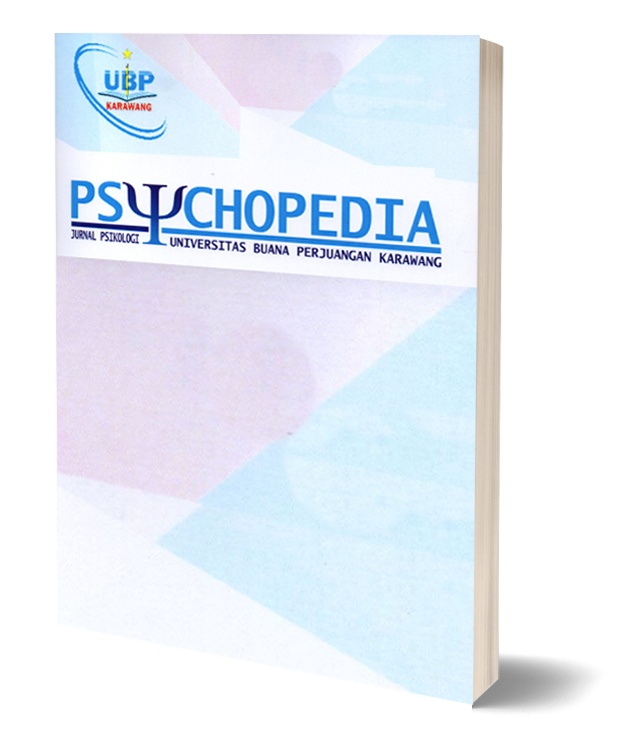KEPRIBADIAN EXTRAVERSI DAN HUBUNGANNYA DENGAN KETERIKATAN KARYAWAN : STUDI META-ANALISIS
DOI:
https://doi.org/10.36805/psychopedia.v8i2.6119Keywords:
Kepribadian ekstrovert, Keterikatan karyawan, Meta-analisisAbstract
Studi meta-analisis ini bertujuan untuk mengetahui nilai korelasi sebenarnya dari hubungan antara variabel kepribadian
extrovert dan keterikatan karyawan (employee engagement). Studi dilakukan melalui analisa 2 artefak, yaitu melalui koreksi
kesalahan pengambilan sample dan koreksi kesalahan pengukuran. Data yang didapatkan dan dianalisis berasal dari 32
studi dalam 18 artikel yang dipublikasi berkisar antara tahun 2006 – 2019 dengan sampel berjumlah 9441. Melalui hasil
studi meta-analisis, diketahui bahwa kepribadian ekstrovert dan keterikatan karyawan memiliki hubungan positif dengan
nilai korelasi sebenarnya (true score) sebesar 0,015. Dari hasil analisa juga diketahui bahwa dampak kesalahan pengambilan
sampel sebesar 18% sedangkan dampak variasi reliabilitas sebesar 2,79%
The purpose of this study was to determine the actual correlation value of the relationship between the extraversion
personality and employee engagement. The study was carried out through analysis of 2 artifacts, namely through sampling
error correction and measurement error correction. The data obtained and analyzed came from 32 studies in 18 articles
published between 2006 - 2019 with a sample of 9441. Through the results of meta-analysis studies, it is known that
extraversion personality and employee engagement have a positive relationship with the true correlation value (true score)
of 0.015. From the analysis results, it is also known that the impact of sampling error is 18%, while the impact of variations
in reliability is 2.79%.

